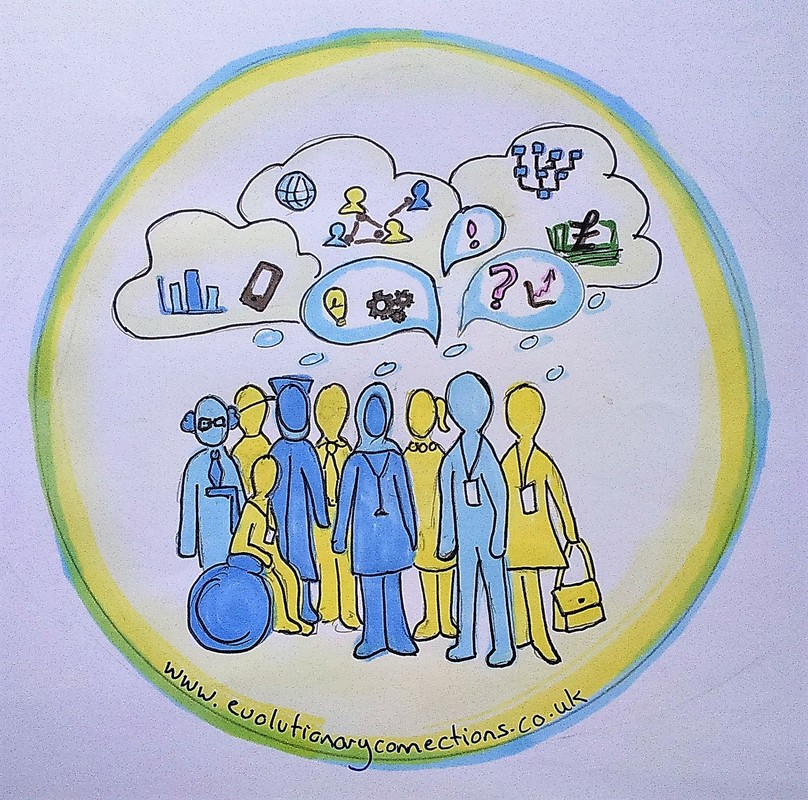|
The Sustainability and Transformation Planning process challenges health and social care to achieve two huge tasks. Redesign and build a new system around the needs of people and communities and do it in a financially sustainable way. To add to the complexity STPs are caught in tensions between central government and local control, long term aspirations and short term crisis and the recognition of the potential to realise huge change against the scepticism that this is just another way to cut budgets and services. It’s not only the outcomes and environment that are challenging. To succeed the system and the people in it must begin to work in a whole new way. Local leaders have been given joint responsibility to deliver. This demands a refocus from the internal hierarchies and individual organisations to spanning boundaries and building authentic relationships and networks across the landscape. Changing demographics and demands; depleted financial and staff resources; new technology; changing patient, staff and community expectations and redefining of illness, health and well-being all combine to create a complex, unpredictable and sometimes volatile environment for this work.
To work well as systems leaders, thinking beyond the usual focus of one organisation and instead holding what benefits the whole system requires relationships built on trust, shared values and the ability to appreciate contributions from all parts of the system. It also requires a huge change of perspective. We need to move from organisation based discussions focused on acute hospital ward closures to apply generative listening to the people and community who need the services and the staff who are passionate about and committed to providing it. When we take a step back and look at this challenge, it is obvious that conventional change management alone cannot deliver. It would not be efficient in terms of use of management staff and resources, or effective in terms of facilitating the innovative and inclusive approach that this task requires. Leaders need to set clear direction, boundary the space with information about standards, available resources and needs and then step back and empower and enable their staff and communities to develop, own and execute the changes. This is an anxiety provoking situation and travelling the road together is always slower than forging ahead as individual organisations or services. So, despite the pressure we must progress at a measured pace if it is to be done sustainably. It is because leaders are now fully appreciating the situation and achieving the confidence to hold the space and step back that Communities of Practice are becoming a popular way of working. Communities of Practice work first to bring people together around a shared interest or domain. This can be a professional or academic interest and can also be about personal or lived experience. Bringing different expert experiences and tacit knowledge together and enabling people to develop shared stories, collective sense making and shared values develops a group identity and relationships where deep learning and new knowledge and practice can be developed. Communities can bring people together across traditional boundaries, encourage groups to identify their most burning questions and facilitate them to co-create new knowledge and practice in response to the most complex challenges. Staff involved in this way of working have reported a reconnection with motivations and values that they felt had been lost in their work. Patients, service users and carers spoke about being heard and valued as their experiences were validated and aspirations recognised. Perhaps most importantly Communities are generating innovative, sustainable solutions to sticky problems and creating real value for themselves, their organisations and communities. Proof perhaps that “None of us is as smart as all of us”. |
AuthorJane Pightling has experience across the public, private and charitable sector. Through her work in the NHS Leadership Academy and her consultancy Evolutionary Connections she developed complex systems leadership capacity, providing training, coaching programmes and establishing networks and communities of practice to sustain learning. She maintains her social work registration and her commitment to person centred and community focused approaches. Jane has a deep interest in the potential offered by new ways of working, designing and building organisations and communities that can best deliver this kind of service. She works with organisations and leaders to develop approaches that design in autonomy, wholeness and purpose. Archives
October 2021
Categories
All
|



 RSS Feed
RSS Feed